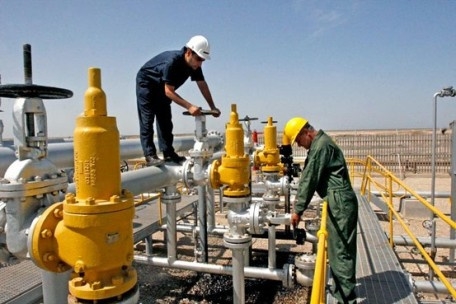Iranian Oil Hard to Replace

IRD: Last week, the French government announced that it would enforce unilateral sanctions on the purchase of Iranian oil. Other news has also been broadcast about other Western countries imposing similar sanctions. Do you predict a shock for the global economy and an increase in the international price of oil?
NQ: The global economy is in an exceptional crisis; the EU and the US undoubtedly face one of their greatest economic challenges. If the flow of Iran's oil, as the second large exporter of OPEC, is suddenly halted, it will at least psychologically affect the oil market at a time when the Libyan oil flow has not returned into its former level and there are great upheavals in the Arab World. Replacing 2 million barrels of oil per day seems a taxing venture. According to the latest studies, Saudi Arabia has the capacity to increase the production of oil in the Persian Gulf region by 2.5 million oil barrels per day, but it is not certain whether it is possible to produce more than 12 million barrels of oil for a long time. If it is even possible to replace the Iranian oil, the political crisis provoked by such a measure will be followed by undesirable consequences.
IRD: Considering to the souring relations of Iran and the Arab countries, can the Arab countries compensate for Iranian oil just in case?
NQ: It is not the first time our relations with those countries have gone downhill. During the past three decades there were some challenges in OPEC; there was a war between the two OPEC member countries of Iran and Iraq, lasting for eight years, followed by Iraq’s attack on Kuwait, putting the Kuwaiti oil wells on fire. However, it is not acceptable, regarding OPEC’s regulations, that Saudi Arabia sells underpriced oil in replacement of Iran, just for political reasons –including the US’ pressure, since it will lead to a political impasse. All OPEC members try to not mingle the oil trade with political matters, since it would challenge the Persian Gulf countries with serious problems. Saudi Arabia has replaced Iran in the oil market where there are fiscal sanctions restricting Iran’s reception of payments. But if even for a short time, the increase in price incurred by the replacement brings further stagnation in the European and the US’ economy.
IRD: Regarding the dependence of the Western countries’ economy on Iran’s oil and gas and the current economic problems in the Eurozone, what challenges would be awaiting Europe?
NQ: Currently, Iran does not export any gas to Europe and the oil exports to the continent are less than 450K barrels per day. Europe can decrease its imports from Iran and fulfill its energy demands from other countries, while Iran could increase its exports to other countries. For example, Japan’s oil imports from Iran, Kuwait and Qatar are 300-400K barrel per day. Now, if Europe increases its imports from Kuwait and Qatar, Japan may increase its importing of Iranian oil. If the US puts pressure on Japan, South Korea, India, Taiwan and Turkey not to purchase Iranian oil or prevents liquidations through fiscal boycotts, Iran will face serious problems in exporting its oil.
IRD: We have seen debates going on about attacking Iran and the start of another war in the Middle East, considered by many experts as a panacea for the global economic stagnation. How are they related? Can a war improve the Western economy’s dynamism?
NQ: This is just another conspiracy theory. I disagree with those who argue that war is a blessing for the arms factories and can consequently bring prosperity to the Western economy. To what extent is the West’s economy dependant on armament factories anyway? Certain American and French factories may accumulate some wealth, but this does not resolve the global economic crisis. The economic problems of Greece, Portugal, Spain, etc. cannot be tackled by a boom in the arms industry.
Generally speaking, development of a country heavily hinges upon its energy sector. Thus, all efforts are made to not allow politics to interfere with energy concerns. The sanctions imposed throughout recent years seriously substituted the long-term energy priorities of Iran with the daily concerns of some regional countries. Iran has tried not to confuse things; however, those who provoke the energy crisis to obtain their short-term objectives are responsible for the politicization of oil.
*Nersi Qorban is the General Director of Narkangan Co., an oil and gas affairs expert and a columnist for the website Iranian Economy.

